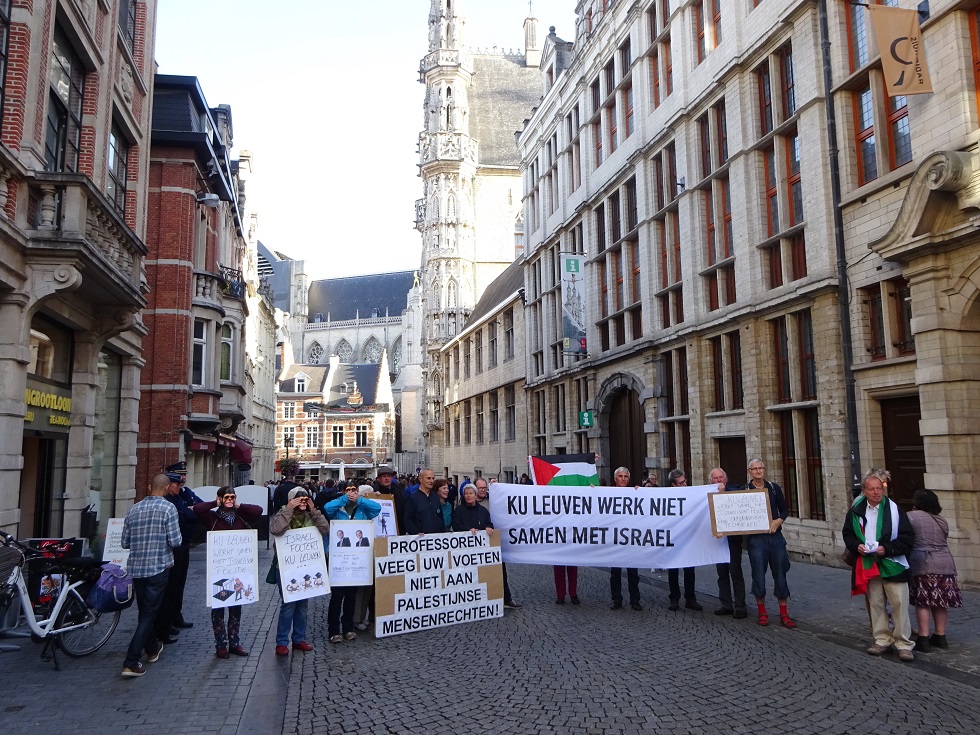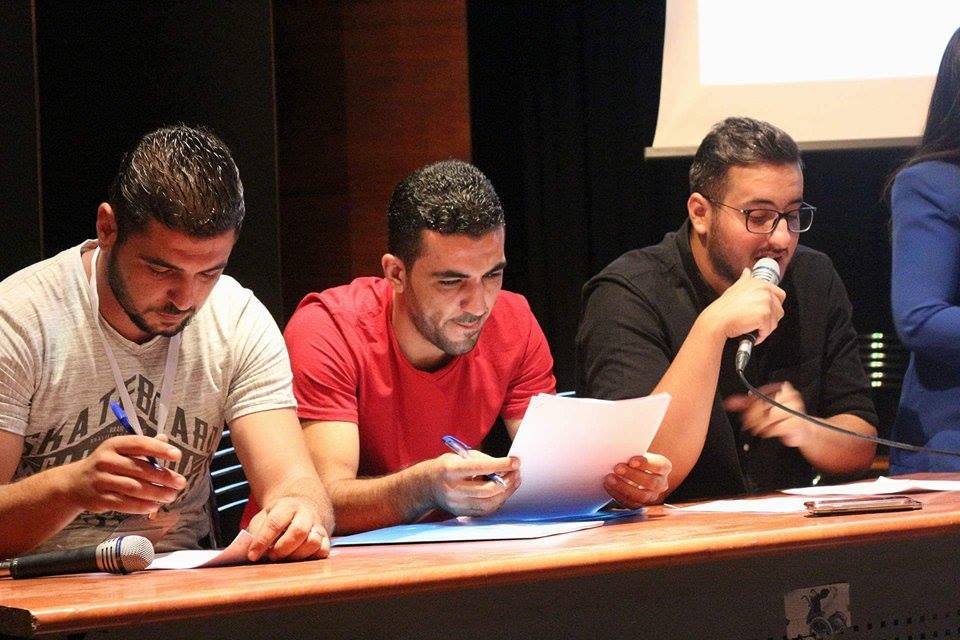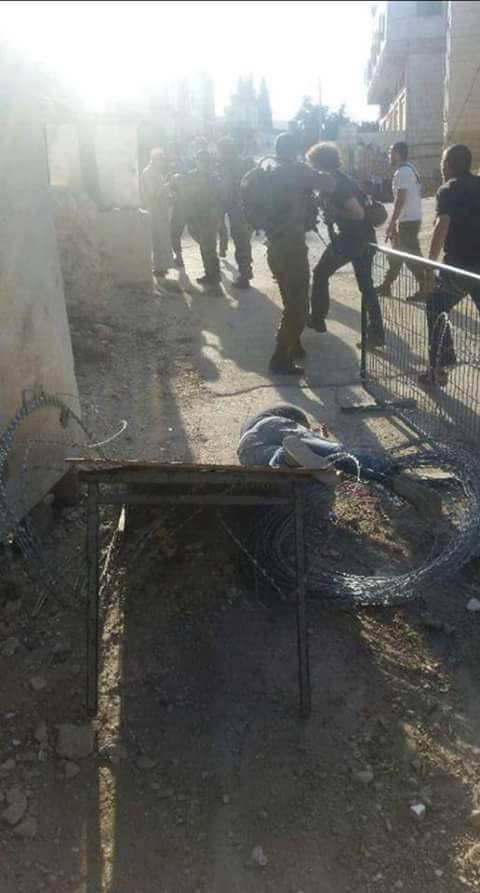Co-authored by Maren Mantovani and Ángel Alonso.
“It is our responsibility to do what is in our reach to support justice in Palestine.” With these sound and simple words Jesús Manuel Sánchez Antuña, the mayor of Langreo, has reaffirmed the solidarity of the small town in Asturias, in northern Spain. We had visited to thank the local council for its decision to declare the municipality ‘free of Israeli Apartheid’ and not to contract any companies that are involved in Israeli violations of Palestinian human rights and international law.
Almost 60 local and regional councils all across the Spanish state have passed similar motions over the last two years. Only recently, the provincial capital Cádiz (Andalucia, southern Spain) and eight more councils in the province have joined the effort. At the end of July, the town of Santa Eulària on the island of Ibiza, one the most popular holiday resorts in the Balearic islands, opted to free itself of Israeli apartheid passing such a solidarity motion. Other world-famous places in Spain, including the island of Gran Canaria, Córdoba, Sevilla, Santiago de Compostela and Gijón, are today destinations that offer an unforgettable holiday free of Israeli apartheid.
The wave of support for Palestinian rights among cities across the Spanish state is based on the campaign to build ‘Israeli Apartheid Free Zones’ launched in 2014 by RESCOP to commemorate the 10th anniversary of the 2004 Advisory Opinion of the International Court of Justice on the Wall. The Israeli Apartheid Free Zones are part of the global campaign for boycott, divestment and sanctions (BDS) and ‘support the creation, in our neighbourhoods, towns and cities, of commercial, cultural, political, sporting, academic and social spaces in the Spanish state, which refuse to collaborate with, or passively support, the Israeli colonial and apartheid system’. The campaign aims to ‘create islands of political awareness and to consolidate Israeli Apartheid Free Zones in different parts of the Spanish State’.
In Gijón (Asturias), for example, one can walk into shops, libraries, restaurants, bars and coffee shops that display a logo at the entrance alerting that the space is ‘Israeli apartheid free’. Citizens and visitors can shop or meet friends in environments that guarantee that in these premises no products from Israel or companies that are targeted by the global BDS movement are being sold or used in the food or products. These are spaces where no Israeli propaganda or cultural whitewashing is tolerated.
Since 2015, more and more municipalities in the Spanish state are joining the movement to free themselves of Israeli apartheid. Municipal councils have passed motions committing to ensure that taxpayers’ money is not spent on companies and products that are complicit in Israeli violations of Palestinian human rights and that the local institutions do not promote relationships with Israeli institutions that would legitimate or support Israeli illegal policies against the Palestinian people. This includes adapting procurement processes in order to reflect this position and declaring the Israeli ambassador in Spain “persona non grata”. They further promote the logo of the ‘Israeli Apartheid Free Zones’ and support local Palestine solidarity initiatives.
As the Association in Defense of Human Rights in Andalucía has explained:
the Israeli Apartheid Free Zones campaign is a positive proposal which allows a conscious purchase policy, a responsible and fair consumption that does not mean the boycott to specific (local) businesses but encourages the choice of companies and products that are made in the context of human rights violations. This measure, which in fact also favors local production and trade, is intended to inform neighbors and consumers about production conditions and to raise awareness about the situation of the Palestinian population expelled from their own territories and under apartheid in their own country.
Over decades, an unparalleled number of states, multilateral organizations and all levels of UN bodies have condemned Israeli policies and underlined the urgency for Israel and the international community to stop, prevent and remedy Israeli violations of international law. Yet, governments have remained largely idle. It is therefore encouraging to see that such a large number of Spanish local and regional councils are now taking action to fulfill human rights, clearly understanding the global impact of their local actions and are using local democracy to promote solidarity and consciousness of the public.
In fact, the steps taken by the ‘apartheid free’ local and regional councils are simply the fulfillment of an obligation for all state actors. Local authorities and other spheres of government bear a legal obligation to withhold recognition, cooperation and transaction with, and/or assistance to parties in any situation that breaches the fundamental principles of international law. These obligations are self-executing and require no further legislative act or incorporation into national law, but only the opportunity, political will and capacity to exercise them. Failure of federal governments to comply with the state’s obligations does not exonerate other spheres of government within a territory from their duties. Based on this understanding, in December 2014, the International Conference on Local Government and Civil Society Organizations in Support of the Rights of the Palestinian People organized by the UN and local government networks in Seville called in its final statement (‘Olive Declaration’) on local governments to “commit to responsible investment, to refrain from contracting with parties and/or twinning with cities that support or benefit from occupation, or violate related prohibitions under international law”.
Pitiful is thus the reaction of the pro-Israel lobby in the face of growing support for such actions. After supporters of Israeli apartheid policies lost the democratic process in ever more local councils, they have used a recently created NGO to bring legal cases against some of those municipalities. They aim to use district court decisions to prohibit local councils from introducing human rights based criteria in their procurement procedures, arguing this would constitute ‘discrimination’.
Such logic favours impunity not only for all those companies and institutions complicit with Israeli crimes and illegal policies, but would, if successful, promote complete impunity for any human rights violating corporation. Citizens, social justice movements and decision makers alike would see themselves deprived of the possibility to define even the most basic red lines on how their money will be spent.
It is not surprising that pro-Israel efforts once again align with corporate interests and show anti-democratic traits. Israeli occupation, apartheid and colonialism are sustainable exactly because it denies an entire population its rights and ensures corporations can reap profits from its expansionism and repression of the Palestinian people.
It is therefore in the interest of all of us that we defend local democracy, the principles of international law and the values of human rights. While you may start the campaign to free your own city from Israeli apartheid, come and enjoy your holidays in the Israeli apartheid free cities, bars and restaurants in the Spanish state.
Article originally published on middleeastmonitor.com, see here.
Maren Mantovani, coordinator of international relations of the Palestinian Stop the Wall Campaign. Ángel Alonso, member of the Arab Cause Solidarity Committee, a member of the Solidarity Network against the Occupation of Palestine in the Spanish State (RESCOP).




